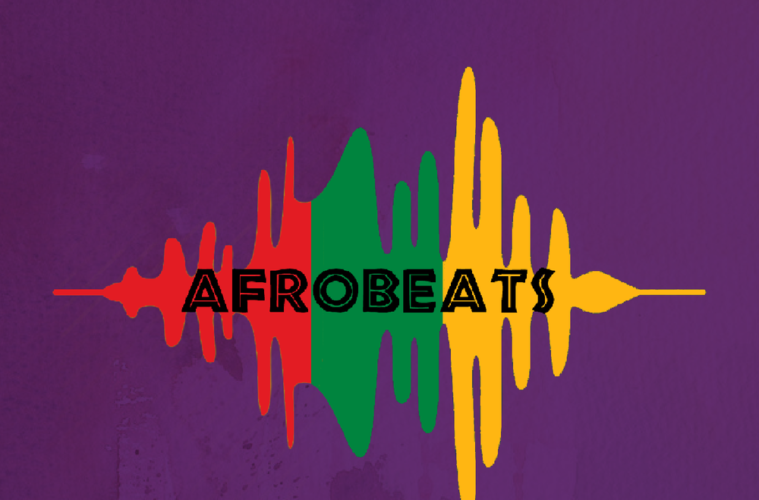Graph the True Data and Reality
Modeling reality isn’t about getting it perfectly right. It’s about getting close enough to act meaningfully

In the modern music industry, data has become a crucial component that drives decisions, shapes strategies, and helps create more engaging experiences for fans. In the case of Afrobeats, a genre that has taken the world by storm, the ability to access and analyze detailed artist and track-level data can be a game changer. From understanding artist popularity to mapping collaborations, comprehensive data opens up a wide array of opportunities for industry professionals, artists, and fans alike.

For years, the Afrobeats genre has been on the rise, with artists like Davido, Wizkid, and Burna Boy spearheading this global movement. However, to sustain this growth, stakeholders in the music ecosystem must rely on data to make informed decisions. Whether it’s determining which cities an artist should tour based on their popularity or identifying trending collaborations, data is a critical tool for navigating the fast-paced, competitive nature of the music industry.
Let’s break down some of the key ways this data can be applied:
Music labels and managers can use data to track the performance of an artist’s albums and singles. By analyzing metrics such as track popularity, total number of streams, and collaborating artists, they can adjust marketing strategies accordingly. For example, if a track performs well in international markets, that could be an indicator that the artist should focus on touring there or launching targeted campaigns.
In addition to performance, the data can provide insights into an artist’s audience. Understanding where their fan base is growing fastest, or which types of collaborations resonate most, allows artists to refine their creative and business strategies.
Streaming platforms and social media thrive on personalization. Data on favorite artists, their discographies, and collaborations allow platforms to curate highly personalized experiences for users. By analyzing listening habits, platforms like Spotify can recommend similar tracks, new releases, or collaborations to listeners, keeping them engaged and discovering new music within their taste profile.
For fans, knowing more about the musicians they love creates a deeper bond with the artist and their work. Data-driven insights make this connection even more exciting, giving fans direct access to behind-the-scenes information about their favorite artists, such as release dates, collaborations, and album popularity.
One of the most exciting benefits of detailed data collection is the ability to identify emerging trends. As Afrobeats continues to expand its influence globally, analyzing data can reveal which artists are breaking into international markets and how their music is evolving. For instance, understanding how often Nigerian artists collaborate with global pop stars can indicate the genre’s spread across borders.
Tracking popularity, collaborations, and releases over time can help predict which up-and-coming artists might break out next. Labels, promoters, and event organizers can use this data to support the careers of rising stars, further amplifying Afrobeats' reach.
Afrobeats thrives on collaboration, with artists frequently featuring others on their albums and singles. This can be captured and analyzed through data, revealing collaboration networks that show how artists influence and support one another. Understanding the collaboration landscape can be especially useful for producers and talent scouts, helping them discover potential partnerships that could result in hit songs.
For example, in an album like Davido’s Timeless, data shows that multiple artists contributed to different tracks. Breaking down this data allows stakeholders to identify recurring partnerships and create maps of the Afrobeats collaborative ecosystem.
Leveraging APIs like Spotify’s, you can easily build a data pipeline to collect detailed information on Afrobeats artists. Below is an example of how this might look in practice:
import os
import json
from requests import get, post
from dotenv import load_dotenv
# Load environment variables
load_dotenv()
client_id = os.getenv("CLIENT_ID")
client_secret = os.getenv("CLIENT_SECRET")
# Function to get Spotify API token
def get_token():
auth_string = f"{client_id}:{client_secret}"
auth_base64 = base64.b64encode(auth_string.encode('utf-8')).decode('utf-8')
url = 'https://accounts.spotify.com/api/token'
headers = {
"Authorization": "Basic " + auth_base64,
"Content-Type": "application/x-www-form-urlencoded"
}
data = {"grant_type": "client_credentials"}
result = post(url, headers=headers, data=data)
return json.loads(result.content)["access_token"]
# Get the token
token = get_token()
# Function to get artist data
def search_for_artist(token, artist_name):
url = "https://api.spotify.com/v1/search"
query = f"?q={artist_name}&type=artist&market=NG&limit=1"
result = get(url + query, headers={'Authorization': f'Bearer {token}'})
return json.loads(result.content)["artists"]["items"][0]
# List of Afrobeats artists
afrobeats_artists = ["Davido", "Wizkid", "Burna Boy", "Asake", "Tiwa Savage", ...]
# Collect artist data
all_artist_data = []
for artist in afrobeats_artists:
artist_data = search_for_artist(token, artist)
if artist_data:
all_artist_data.append({
"artist_name": artist_data["name"],
"artist_id": artist_data["id"],
"popularity": artist_data["popularity"],
"followers": artist_data["followers"]["total"]
})
# Save data to JSON file
with open("nigerian_artists_data.json", 'w') as f:
json.dump(all_artist_data, f, indent=4)
The script above pulls key metrics such as artist name, popularity, and followers for top Nigerian Afrobeats artists, which can then be analyzed to discover trends, audience reach, and more.
For a deeper look, check out the code repository here: GitHub - Scraper.
Data has become the backbone of the modern music industry, enabling smarter decisions and creating stronger connections between artists and their fans. In a rapidly expanding genre like Afrobeats, harnessing the power of data is critical to keeping pace with the industry’s growth. By collecting and analyzing detailed metrics, we not only track the genre’s evolution but actively shape its future.
In the coming months, we’ll be developing collaboration networks for 25 Afrobeats artists, focusing on how they connect within the Nigerian music industry.
Our first goal is to map these collaborations and understand artist partnerships. Later, we’ll expand to include record labels and grow the list to 100+ artists.
We’re still in the early stages, but the possibilities are endless! Stay tuned for more updates.
References: